Building bridges & partnerships for better outreach in Southeast Asia
East and Southeast Asian countries are ageing fast and a key challenge of this demographic trend is the capacity of women to meet financial needs in old age.

For more information, visit
www.tsaofoundation.org
Tsao Foundation, through its International Longevity Centre Singapore, implements ground-breaking community development programmes, policy-relevant research, and stakeholder collaborations to join the dots between the academia, enterprise and public policy for more innovative and effective approaches to population ageing.
Since 2006, ILC Singapore has been engaging key policymakers and other stakeholders in Singapore to create awareness on the issues of older women and financial security.
Its advocacy efforts paved the way for the launching and pilot testing of a financial response to the need to educate women and create an opportunity for them to work towards their own financial security in old age. This programme came to be known as the Citi-Tsao Foundation Financial Education Programme for Mature Women. In 2012, the programme was adopted by the People’s Association Women’s Integration Network Council, the largest organization of women leaders and volunteers at the community level in Singapore. This robust multi-stakeholder initiative has been replicated in other countries in the region specifically, in Indonesia and Malaysia.
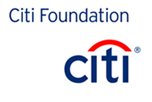
For more information, visit
www.citifoundation.com
The Citi Foundation works to promote economic progress in communities around the world and focuses on initiatives that expand financial inclusion. We collaborate with best-in-class partners to create measurable economic improvements that strengthen low-income families and communities. Through a "More than Philanthropy" approach, Citi's business resources and human capital enhance our philanthropic investments and impact.
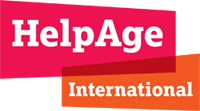
HelpAge International is a global network of organisations promoting the right of all older people to lead dignified, healthy and secure lives.
The network has a strong, value-based position which puts the experience of older women and men at the centre of their work. HelpAge’s mission is to promote the wellbeing and inclusion of older women and men, and reduce poverty and discrimination in later life. It strives to work with older women and men in low and middle-income countries for better services and policies, and for changes in the behaviours and attitudes of individuals and societies towards old age.
The world HelpAge wants is one where every older woman and man, everywhere, can say:
"I have the income I need"
"I enjoy the best possible health and quality of life"
"I am safe and secure, free from discrimination and abuse"
"My voice is heard"
Indonesia

For more information, visit
www.ppsw.or.id
Asosiasi Pusat Pengembangan Sumberdaya Wanita (PPSW) is a women's NGO that is concerned with gender diversity and equality. The main purpose of the organization are: (1) To facilitate the capacity building of women in particular, and society in general (as the coordinating institution) and (2) To advocate for the realization of solidarity and cooperation among women and communities to struggle for the creation of gender equality and foster a conducive climate for women's capacity building.
In 2011, PPSW launched the Financial Education for Mature Women Program to meet the needs of Indonesian mature women and build PPSW’s capacity to deliver this program effectively to its grassroots women's group members. It aims to increase participants' knowledge of financial issues, especially asset building and protection, pensions and savings to prepare for old age as well as facilitate the development of a financial plan. It has now reached out to more than 6,000 women aged 40 years and over from Jakarta, West Java, Banten, Riau, Aceh and West Kalimantan Provinces.

For more information, visit
cas.ui.ac.id
Universitas Indonesia (UI) established the Centre for Ageing Studies (CAS UI) in 2010, to study and create solutions for ageing issues in the areas of medicine, dentistry, nursing, psychology, socio-economic sciences, basic sciences and technology; and to participate in improving the quality of life of an ageing society through the creation of wellness programmes based on research findings.
The vision of CAS UI is to be acknowledged as an interdisciplinary and internationally recognized research centre on ageing, using a comprehensive and holistic approach in research, education and consultation services, with significant contributions to health, medical, psychological, social services and technology.
The main areas of research include medical gerontology (investigating health and medicine pertaining to ageing), social gerontology (including demography, social inclusion, financial security, among others ) and gero-technology (including research on building, housing and the environment relating to ageing). This includes research on the role, health status and financial security of older women.
The Centre collaborates closely with a range of partners, from academic institutes, government ministries and non-governmental organization to conduct research, training, consultations and advocacy on older persons and ageing, including on older women. Together with PPSW and the Tsao Foundation (Singapore), it conducted an assessment of mature women and financial literacy. The Centre also conducted a workshop with PPSW on Financial and Health Literacy among Older Women.
Malaysia

For more information, visit
www.myageing.upm.edu.my
The Malaysian Research Institute on Ageing (MyAgeing™), Universiti Putra Malaysia (UPM) is a research institute that specifically focuses on conducting research related to the aged and ageing. Formerly known as the Institute of Gerontology (IG), it was officially established on 01 April 2002 with the vision and mission to be a world-class center of excellence in gerontology and geriatrics through research, education and professional services. In recognition of the contribution and role played by the Institute of Gerontology (IG) in the field of ageing in Malaysia, the government endorsed the rebranding of IG as the Malaysian Research Institute on Ageing (MyAgeingTM) on 20 March 2015.
MyAgeing™ is responsible for the coordination and monitoring of the population ageing agenda as outlined in the 11th Malaysia Development Plan (RMK11).
MyAgeing™ functions as a national center for research in gerontology, geriatrics and gerontechnology, as well as driving innovations to address the multidimensional challenges of old age and ageing in Malaysia and the region. The vision of MyAgeing™ is to become an international center of distinction on ageing.
MyAgeing™ has three laboratories. The Laboratory of Social Gerontology is based on a multidisciplinary approach and the development of life course approaches towards improving the welfare of the elderly. The Laboratory of Medical Gerontology focuses on research in age-related illness and disability. The Laboratory of Gerontechnology focuses on research and development aimed at understanding the aspects of design in technology and environment that enable independent living and social participation of older person in good health, comfort and safety.
Philippines

The National Council of Women of the Philippines (NCWP) was established on 4 June 1946 as an umbrella organization of all women’s organization in the country. It is the biggest network of women’s organisations in the Philippines. It supports the Philippine Commission of Women by implementing policies and programmes to promote gender equality and women’s welfare.
Its mission is to develop the capabilities of women’s organisations and consolidate their efforts for promoting the well-being of women, communities and families.
By 2020, NCWP aims to:
1. Guide and support its members on cooperative planning, social mobilization and consciousness-raising endeavors;
2. Promote and strengthen women’s leadership status, thereby enhancing regional (e.g. APEC, ASEAN, ACWO) and international (UN ECOSOC, UN ICW etc.) networking and linkages; and
3. Encourage unified action towards addressing the problems and issues affecting women.
Singapore
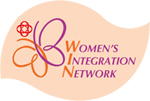
For more information, visit
www.pa.gov.sg/Our_Network/
Grassroots_Organisations/Womens_
Integration_Network_Council
The People’s Association Women’s Integration Network (PA WIN) Council was established in March 1995. The Council works with women leaders in the community to encourage women to participate in community and society, promote community bonding, and volunteer to help the less fortunate. As a capacity-builder in a network of 105 community clubs, it has adopted the Citi-Tsao Foundation Financial Education Programme for Mature Women in 2012 to help Singaporean women manage their finances better and prepare for old age needs.
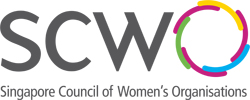
For more information, visit
www.scwo.org.sg
The Singapore Council of Women’s Organisations (SCWO) was established in 1980 as the National Coordinating body of women’s organisations in Singapore. SCWO has more than 50 member organisations, which represent over 500,000 women, and it serves to unite them to work toward the ideals of ‘Equal Space, Equal Voice and Equal Worth’ for women in Singapore.
SCWO is represented on various government and inter-ministry committees, as well as regional and international bodies where it contributes views in the areas of family, women, and gender equality, including on elderly women.
Thailand
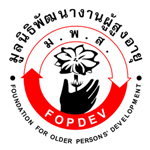
For more information, visit
fopdev.or.th
The Foundation for Older Persons’ Development (FOPDEV) was established in 1999, to work with and for older persons in Thailand to improve the quality of their lives, especially the disadvantaged and vulnerable older persons. It focuses on empowering and sustainable approaches. FOPDEV works to strengthen the capacity of the community and active older persons to provide appropriate care and support for disadvantaged older persons.
FOPDEV’s work is located in in Chiang Mai and the northern region of Thailand which includes Lamphun, Mae Hongson and Chiang Rai provinces. Its main activities include:
• promoting older persons’ rights and income security in old age;
• volunteer based home care services;
• building capacities for empowerment and resilience in Thailand; and
• strengthening CSO (civil society organization) networks on ageing as a development partner in Southeast Asia through the HelpAge International Network.
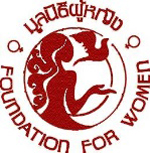
For more information, visit
www.womenthai.org
Foundation for Women (FFW) is a Bangkok-based women’s organization, established in 1984 to help vulnerable women and women in distress. Its activities include:
• providing education to women in different occupational sectors and producing educational media to promote the rights of women as promulgated in the UN Declaration on Human Rights
• conducting research on relevant issues of concern to women
• Implementing projects for women’s development
• conducting activities of public interest
• collaborating with other philanthropy organizations for public interest
FFW applies human rights principles in the implementation of its programmes and activities.
The aim is to respect, protect and promote the rights of individual women and the girl child based on equal participation and mutual learning. FFW believes that the social position of women will be changed through the combined efforts of women and men, but women will play decisive role in this transformation.
Our programmes focus on elderly women, rural women, young women, migrant women, women and children vulnerable to international trafficking, and victims of domestic and sexual violence.
FFW advocates for the inclusion of gender perspectives among policy makers and organizations working on the elderly. Advocacy efforts are targeted to move towards a society where people of all sexes, gender, age, ethnicity and social status can live together in society equally and with dignity.
Vietnam

UNFPA, the United Nations Population Fund, is the lead United Nations agency working on Population and Development, Sexual and Reproductive Health and Gender Equality. We work to promote the right of every woman, man and child to enjoy a life of health and equal opportunity.
We help deliver a world where:
• every pregnancy is wanted
• every childbirth is safe
• every young person’s potential is fulfilled
We are making real progress. Since UNFPA started working in 1969, the number - and rate - of women dying from complications of pregnancy or childbirth has been halved. Families are smaller and healthier. Young people are better educated and more empowered than ever before. But too many are still left behind. Nearly a billion people remain mired in extreme poverty. Reproductive health problems are still a leading cause of death and disability for woman in the developing world.
Young people bear the highest risks of HIV infections and unintended pregnancy. More than a hundred million girls face the prospect of child marriage and other harmful practices, such as female genital mutilation or cutting. Much more needs to be done to ensure a world in which everyone can exercise their basic human rights, including those that r elate to the most intimate and fundamental aspects of life.
UNFPA has been active in Viet Nam since 1977. Since then, we have worked to improve people’s access to quality sexual and reproductive health services, supported the collection and use of high-quality population data, facilitated policy dialogue and helped the Government to develop, implement and monitor evidence-based policies related to sexual and reproductive health, population and development, and gender.
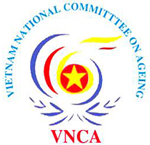
For more information, visit
vnca.molisa.gov.vn
Vietnam National Committee on Ageing (VNCA) is a joint organization mandated to assist the Prime Minister in directing, coordinating and promoting activities for the care of the elderly.
The main tasks of the VNCA are:
1) Assisting the Prime Minister in elaborating the orientation, policies, programs and plans on caring for elderly people and promoting their role;
2) Assisting the Prime Minister in directing, steering, supervising and evaluating the implementation of laws and policies on caring for elderly people and promoting their role that are being carried out in ministries, branches and localities;
3) Assisting the Prime Minister to coordinate with ministries, branches, localities, and mass organizations to disseminate information and mobilize the community on the implementation of policies and legal laws for elderly people;
4) Assisting the Prime Minister in directing international cooperation activities relating to elderly people;
5) Summing up and periodically reporting to the Prime Minister on the implementation of policies and programmes on caring for elderly people and promoting their role.